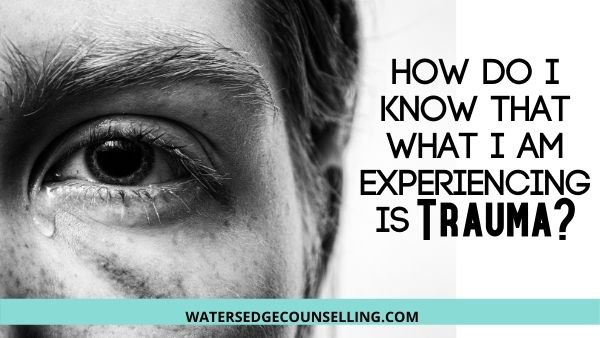
The word trauma literally means wound, injury or damage. When a person says that they feel traumatized, it is the recognition that there was a visceral sensation not unlike an emotional wounding. Under threat (or even perception of threat), our brains survival instinct goes into a heightened arousal state sending the signal to fight, freeze or flee. Our entire body is activated as it is flooded by adrenalin and cortisol. When the threat is over, the emotional injury is often healed as we process what occurred; by talking and reflecting upon the event we make sense of it and integration happens. Our brain’s heightened arousal subsides as it understands the threat is over.
An emotional injury, unresolved at the time, or close to the traumatic event, has the potential to impact our functionality in a variety of ways. When our arousal state is too high, the emotional regulatory mechanisms in the brain are damaged. We become stuck in an oscillating pattern of heightened arousal known as survival mode, constantly feeling unsafe and under threat, and then lower arousal or endurance mode, where we go into a conservation shutdown.
Unresolved trauma changes our sense of the world, of others and even self. The world around us no longer feels safe. Traumatic injury damages our capacity to connect to self and the people around us, so that we feel isolated and alone. Left unattended, emotional injury festers, not unlike a physical wound when left untreated. It is often the case that symptoms are dismissed, ignored or minimized as a way of coping and trying to function as per usual. The body however, does not forget the injury, holding it just beyond our consciousness, giving a sense that something ‘is not quite right’.
Most people do not seek help after a traumatic event. In fact, according to a recent study, the ‘mean’ time that people present for help is 12 years. Only 7% of people suffering trauma will come in the first year. There are a number of possibilities as to why this is – the most common presentation as I talk to clients is that they do not know that what they experience is trauma.
The signs and symptoms of trauma are extensive and vary from person to person. However, there will be a persistence and severity to them that, over time impacts our functionality and connectivity. Here is an extensive list of the signs and symptoms of trauma as provided by VAADA
Thought or cognition: reliving the past, nightmares, flashbacks, decreased memory, decreased attention and concentration, dissociation (detachment/disconnection), poor problem solving and decision-making, suspicion and paranoia, blaming self and others.
Emotional or feeling: anxiety and panic, feeling tense or on edge, depression, anger and irritability, sudden mood changes, fear, sadness, denial and guilt, numbing and avoidance, feeling powerless and controlled.
Behavioral: withdrawal, avoiding reminders of the past, hypervigilance, acting out and agitated behavior, substance use, being easily startled.
Interpersonal: difficulty forming trusting relationships, communication problems, sense of persecution, social isolation.
Physical: headaches, insomnia, sweating, dizziness, difficulty breathing, heart palpitations, muscle tremors, fatigue, sensitivity to sights, sounds, smells, touch and taste if reminded of traumatic event.
Are your experiencing trauma-based symptoms? We can help you take the next step towards healing. Contact Duncan on 0434 331 243, or BOOK NOW.
Leave a Reply